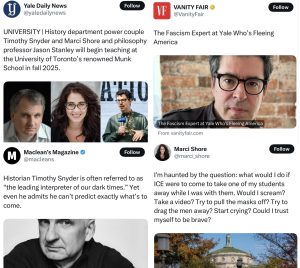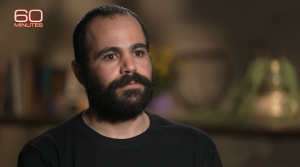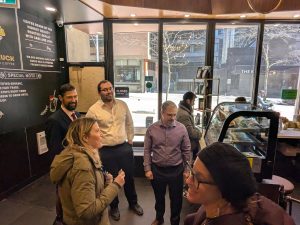COVID may have delayed it by a year and it’s taking place virtually instead of live in Toronto, but Liberation75 is still billing itself as “the world’s largest gathering of Holocaust survivors, descendants, educators and friends.”
The free conference takes place May 4-9 to mark the 75th anniversary of the end of the Holocaust and the liberation of its survivors.
Some 5,000 people from 35 countries – students, educators, survivors, professors, and artists – have committed to attend and the number expected to increase as the event nears.
They will be able to choose from almost 100 sessions, including keynote addresses, speakers, workshops, testimony from survivors, concerts, and films.
The need for such a sweeping overview has not changed, according to Liberation75 founder Marilyn Sinclair.
“We are losing our Holocaust survivors, anti-Semitism hasn’t gone away – it’s gotten worse. Holocaust memory is fading,” Sinclair told The CJN. “And the question, as a global community, is, ‘how are we going to keep the memory and the lessons of the Holocaust relevant for the future, particularly in the absence of survivors, who did all the heavy lifting in terms of sharing their stories, going to schools, creating monuments, creating memorial centres?’”
Boiled down, the five-day event is about what happens when hate goes unchecked, Sinclair said.
It’s even more relevant in light of recent polls showing dismal knowledge of the Holocaust in young people, including one study that said nearly half of U.S. millennials and members of Gen Z could not name a single concentration camp or Jewish ghetto, and 63 percent didn’t know six million Jews were murdered.
“It’s clear the time for discussion is now,” Sinclair said.
MAY 4 – 9, 2021
— liberation_75 (@Liberation_75) February 16, 2021
VIRTUAL. WORLDWIDE. FREE
Register at https://t.co/EoocqFGxLX! #Liberation75 #holocausteducation pic.twitter.com/vIbw2bNkBO
The opening keynote address will take place May 4 at 11 a.m. when Justice Rosalie Abella of Canada’s Supreme Court, the daughter of Holocaust survivors, will appear with Prof. Irwin Cotler, Canada’s first Special Envoy on Preserving Holocaust Remembrance and Combatting Anti-Semitism. They will be interviewed by Globe and Mail journalist Robert Fife.
The next day, at noon, will feature a conversation between CTV anchor Lisa LaFlamme and Elisha Wiesel, the only child of the late author and Nobel laureate Elie Wiesel.
Cotler returns on May 6 at 1 p.m. with professors Payam Akhavan and Naomi Kikoler to discuss the Holocaust’s universal lessons. At 2 p.m. that day, a panel will examine Holocaust denial, distortion, minimization, and glorification.
Other speakers at Liberation75 will include Dr. Ruth Westheimer, Holocaust historian Deborah Lipstadt, Prof. Yehuda Bauer, and Ambassador Stuart Eizenstat, an expert in Holocaust restitution.
Breakout sessions will examine such issues as aiding survivors, contemporary anti-Semitism, remembrance and rebuilding life, and the implications of COVID.
One modern problem to be examined is combating online hate and anti-Semitism. Lawmakers from Australia, the United States, Israel, and Canada will discuss the issue on May 9 at noon.
There will be “intimate sharing groups” for children and grandchildren of survivors.
Participants may also sign up for live, virtual tours of the Auschwitz museum, Yad Vashem, Anne Frank House, and explore the interactive remembrance project called Stolpersteine – small brass plates inscribed with the name and life dates of victims of Nazism that have been installed outside homes across Europe.
A film festival of some 30 productions will highlight how the Holocaust has been told through movies since the end of the war itself.
Concert performers will include Theresa Tova, Amy Sky and Moshe Hammer.
The program reflects “every which way we’ve been talking about the Holocaust for over 75 years,” Sinclair said.
She’s been especially heartened by the fact that since Liberation75’s website went live a year ago, over 400,000 students from around the world have taken its educational programs, including those from remote communities in Canada who never get this kind of programming.
To register, go to www.liberation75.org.






